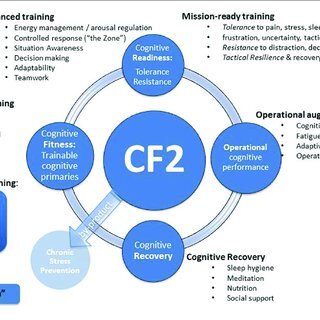

The brain's alertness is the result of what the authors call cognitive fitness -a state of optimized ability to reason, remember, learn, plan, and adapt. Certain attitudes, lifestyle choices, and exercises enhance cognitive fitness. Mental workouts are the key.
Cognitive health is increasingly recognized as a key component of overall health and wellness (Bart et al., 2018).
As with other dimensions of health and wellness, deliberate effort is needed to maintain and especially improve cognitive health.
In this article, we discuss key factors and exercises that can improve cognitive function and help sustain cognitive health across the lifespan.
Before you continue, we thought you might like to download our three Positive Psychology Exercises for free. These science-based exercises will explore fundamental aspects of positive psychology including strengths, values, and self-compassion, and will give you the tools to enhance the wellbeing of your clients, students, or employees.
This Article Contains:
Strengths-Based Approach to Cognitive Health
How to Improve Cognitive Function 101
Enhancing Cognitive Health: 6 Exercises & Games
How to Maintain Cognitive Fitness in Older Age
Testing Cognitive Fitness: 5 Health Assessments
Can Supplements Help Maintain Cognitive Health?
Helpful PositivePsychology.com Resources
A Take-Home Message
References
Strengths-Based Approach to Cognitive Health
For much of their history, psychiatry, clinical psychology, and related disciplines like counseling focused on treating our deficits, rather than developing our strengths.
This focus on deficits began to shift dramatically with the advent of positive psychology.
With the positive psychology movement in the late 1990s came a focus on finding and developing an individual’s strengths and using these to overcome any deficits (Diener, 2009).
In the realm of cognition, this entailed finding areas of thinking, memory, and problem solving that were relative strengths for an individual.
For example, you might find that abilities such as sustained attention and organization are among your most notable cognitive strengths. You might also note the presence of external factors supporting your cognition, such as a healthy diet, regular exercise, and good sleep habits.
In taking careful inventory of your cognitive strengths, you are in the best position to enhance and deploy them, improving your cognitive health and function.
Enhancing Cognitive Health: 6 Exercises & Games
There are various high-tech cognitive exercises available through paid programs such as Lumosity. Such programs offer digitally based brain exercises for most ages and ability levels.
However, there are also relatively low-tech, low-cost, effective options for cognitive strengthening, available to most individuals with some ingenuity and effort. Harvard Medical School has outlined several of these (Godman, 2021), including the following:
Learn a new language
This can help with mental agility and be neuro-protective, since a new language forges new connections among neurons, making them more resistant to disease (Kroll, Dussias, Bice, & Perrotti, 2015).
Listen to or make music
Music activates multiple brain areas, including those that process emotions, memory, and movement (Wan & Schlaug, 2010). There are many free online sites for listening to and learning to play music.
Cards, board games, and electronic games
Card games are a cheap and fun way to exercise memory and strategy skills. Board games like Trivial Pursuit build memory for facts, while games like Monopoly exercise math, financial, and strategy skills. Strategy and 3D adventure video games have been shown to have significant benefits for attention, short-term memory, and reaction time (Brilliant T, Nouchi, & Kawashima, 2019).
Travel
Whether to near or far destinations, travel exposes us to new sights, sounds, and experiences that build new connections between neurons, including the so-called “place cells” in the brain’s memory circuits (Eichenbaum, Dudchenko, Wood, Shapiro, & Tanila, 1999).
Cultural consumption
Take in films, plays, poetry readings, museum tours, etc. The newer and more unusual these are for you (for example, seeing a foreign film, visiting a new museum, or reading a poet you haven’t read before), the more challenging and stimulating they will be for your brain and the more new connections you will establish between neurons (Park & Huang, 2010). Culture can wire and rewire the brain, a process that continues throughout our lives.
Puzzles
Puzzles are meant to challenge the brain. They also draw on the brain’s natural tendencies to perceive patterns, complete sequences, and solve problems (Fissler et al., 2018).
31 Jul 2021 by
Scientifically reviewed by Melissa Madeson, Ph.D.
